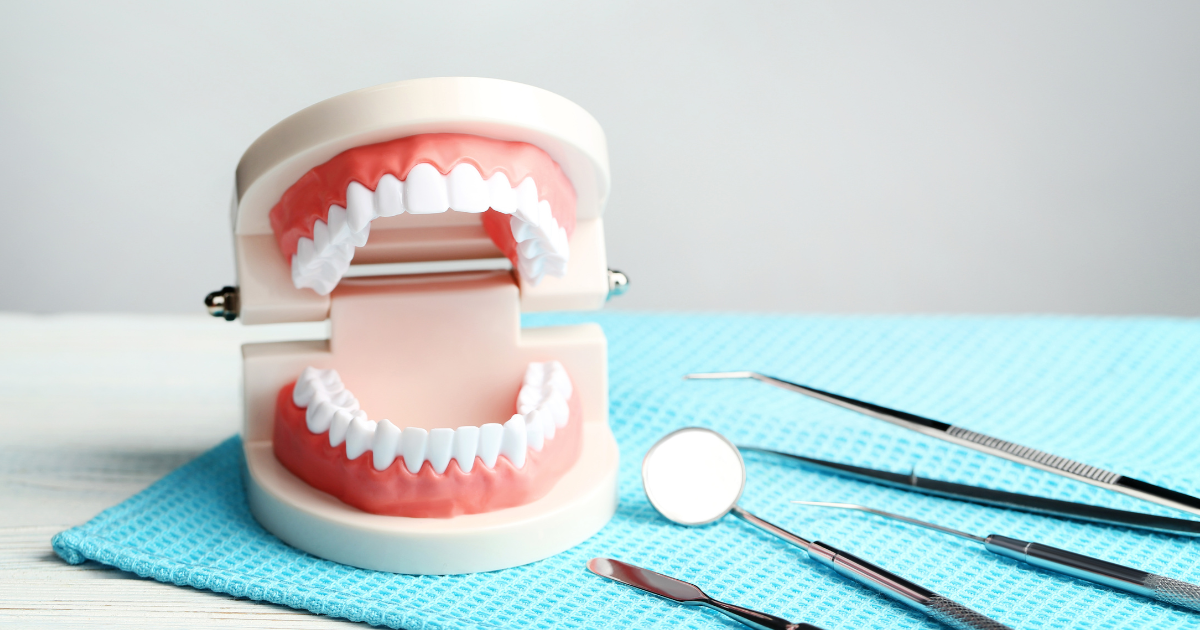How Unified Smiles Helps Dental Practices Protect Profitability & Power Growth
Even the most successful dental practices feel the pressure of rising supply costs, shrinking reimbursements, staffing challenges, and constantly...

EBITDA stands for Earnings Before Interest, Taxes, Depreciation, and Amortization. It is a financial metric that provides a snapshot of a dental practice's operational performance. By understanding EBITDA, dental practice owners can gain valuable insights into their practice's profitability and financial health.
EBITDA is important for dental practice owners as it allows them to assess their practice's ability to generate revenue and manage expenses. It provides a clear picture of the practice's operating income before the impact of interest, taxes, depreciation, and amortization. This metric is particularly useful for independent dental practice owners as it helps them evaluate their practice's performance and make informed decisions to improve profitability.
To improve your dental practice's profitability, it is crucial to analyze your current EBITDA performance. This involves reviewing your financial statements and identifying areas where you can make adjustments to increase your EBITDA.
One way to analyze your EBITDA performance is by comparing it to industry benchmarks. This will give you a sense of how your practice is performing relative to others in the industry. If your EBITDA is below average, it may indicate that there are opportunities to improve your practice's profitability.
Additionally, you can analyze your EBITDA performance by identifying any trends or patterns. Are there certain months or seasons when your EBITDA is consistently higher or lower? Understanding these patterns can help you identify the factors that contribute to fluctuations in your EBITDA and take proactive measures to improve it.
One effective strategy to improve your EBITDA is by implementing cost-cutting measures. By reducing expenses, you can increase your practice's profitability and ultimately improve your EBITDA.
Start by conducting a thorough review of your expenses and identifying areas where you can make cuts without compromising the quality of patient care. This could include renegotiating contracts with suppliers, finding more cost-effective solutions for equipment and supplies, or optimizing your staffing levels.
It's important to involve your team in the cost-cutting process and foster a culture of efficiency and resourcefulness. Encourage your staff to suggest ideas for reducing expenses and reward them for their contributions. By working together, you can identify innovative ways to streamline operations and improve your practice's financial performance. Joining a dental group purchasing organization or buying group can significantly help you reduce your expenses and save time. Leveraging the collective power of many, a dental group purchasing organization (GPO) can negotiate reduced prices with suppliers.
In addition to cost-cutting measures, implementing revenue-boosting strategies is another effective way to improve your EBITDA. By increasing your practice's revenue, you can enhance profitability and drive growth.
One revenue-boosting strategy is to focus on attracting new patients and retaining existing ones. This can be achieved through targeted marketing campaigns, offering special promotions or discounts, or providing exceptional customer service to encourage patient referrals.
Another strategy is to optimize your pricing structure. Analyze your fee schedule and compare it to industry standards to ensure that you are charging competitive rates. Consider introducing additional services or packages to increase the average revenue per patient.
Additionally, investing in technology and expanding your service offerings can help attract new patients and increase revenue. Stay up-to-date with the latest advancements in dental technology and consider adding new procedures or treatments that are in high demand.
By leveraging revenue-boosting strategies, you can not only improve your EBITDA but also create a solid foundation for long-term success and growth.
Improving your EBITDA is not a one-time effort, but an ongoing process. It is important to continuously monitor your EBITDA performance and adjust your strategies as needed to ensure long-term success.
Regularly review your financial statements and track key performance indicators to assess the impact of your strategies on your EBITDA. Identify any areas of improvement or potential risks and take proactive measures to address them.
Stay informed about industry trends and changes that may affect your practice's profitability. This will help you adapt your strategies and stay ahead of the competition.
Lastly, involve your team in the monitoring and adjustment process. Keep them informed about your EBITDA goals and progress, and encourage their feedback and suggestions. By working together, you can continuously improve your practice's financial performance and achieve sustainable growth.
If you're an independent private practice dentist seeking assistance in lowering overhead costs or exploring new revenue streams, consider joining a dental GPO that provides expert guidance - not one that leaves you to figure it out by yourself. Unified Smiles, with over a decade of experience, provides a dedicated Member Services Specialist with extensive experience in the dental industry. Your specialist will work closely with your office as a trusted business advisor to help you achieve significant savings and add revenue streams. Schedule a meeting above or complete the form below to discover more about how they can support your dental practice.

Even the most successful dental practices feel the pressure of rising supply costs, shrinking reimbursements, staffing challenges, and constantly...

Discover how private dental practices can save up to 60% on supplies, maintain their independence, and thrive in a competitive market dominated by...

Are you a dentist looking to maximize your purchasing power?